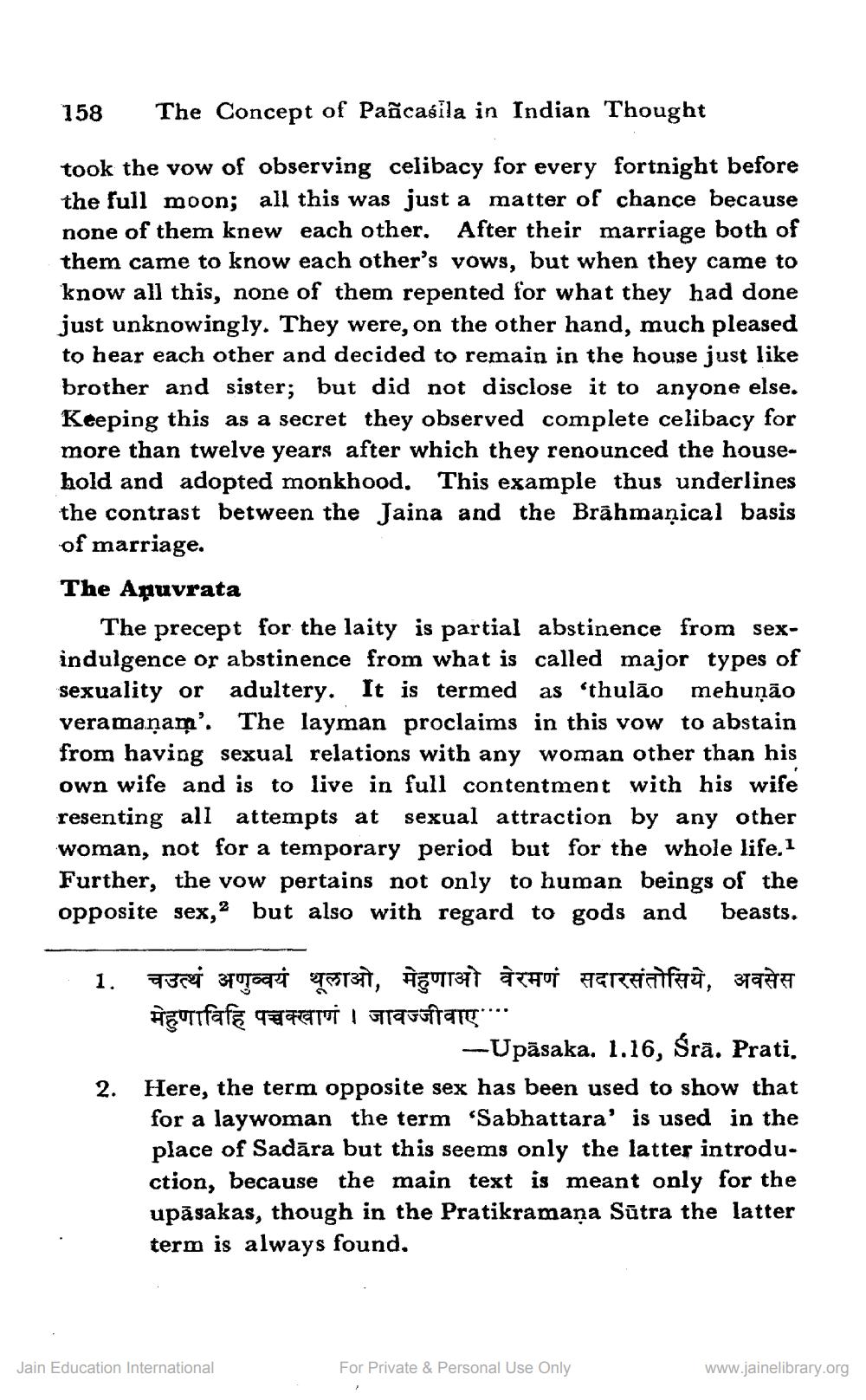________________
158
The Concept of Pancasila in Indian Thought
took the vow of observing celibacy for every fortnight before the full moon; all this was just a matter of chance because none of them knew each other. After their marriage both of them came to know each other's vows, but when they came to know all this, none of them repented for what they had done just unknowingly. They were, on the other hand, much pleased to hear each other and decided to remain in the house just like brother and sister; but did not disclose it to anyone else. Keeping this as a secret they observed complete celibacy for more than twelve years after which they renounced the household and adopted monkhood. This example thus underlines the contrast between the Jaina and the Brāhmaṇical basis of marriage. The Apuvrata
The precept for the laity is partial abstinence from sexindulgence or abstinence from what is called major types of sexuality or adultery. It is termed as "thulão mehuņão veramanam'. The layman proclaims in this vow to abstain from having sexual relations with any woman other than his own wife and is to live in full contentment with his wife resenting all attempts at sexual attraction by any other woman, not for a temporary period but for the whole life.1 Further, the vow pertains not only to human beings of the opposite sex, 2 but also with regard to gods and beasts.
1. चउत्थं अणुव्वयं थूलाओ, मेहुणाओ वेरमणं सदारसंतोसिये, अवसेस मेहुणाविहि पच्चक्खाणं । जावज्जीवाए....
-Upāsaka. 1.16, Śrā. Prati. 2. Here, the term opposite sex has been used to show that
for a laywoman the term 'Sabhattara' is used in the place of Sadāra but this seems only the latter introduction, because the main text is meant only for the upāsakas, though in the Pratikramana Sūtra the latter term is always found.
Jain Education International
For Private & Personal Use Only
www.jainelibrary.org




